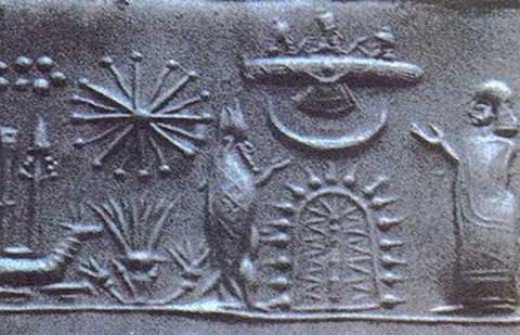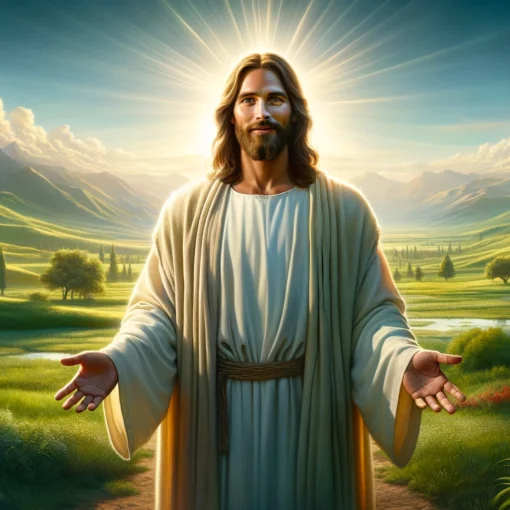“As In the Days of Noah” is used by many groups that study eschatology, which is a study of “end times” prophecy, and I wanted to take some time to explain it’s origins, meaning and often misuse within the area of prophecy.
 Origins
Origins
The first usage of this phrase was uttered by Jesus in his Olivet discourse where he answers the three questions “Tell us, when will these things happen, and what will be the sign of Your coming, and of the end of the age?” ~Matthew 24:3. Jesus goes into detail as to His second coming and what the earth will be experiencing before his glorious arrival. It is in this discourse that we read about the first instance of “as in the days of Noah” where Jesus tells of the parable of the fig tree in Matthew 24:37. Jesus wanted to make a comparison utilizing the story of Noah to illustrate a point with His disciples. It is in this area where confusion among many begins.
Wickedness
Noah’s first appearance is in the book of Genesis 6:8. Before his arrival, a scene is painted with regard to the people, and even the animals of the earth as being totally wicked. God was sorry that he even created man as stated in Genesis 6:6. He found favor with the seventh son of Adam and tasked him to build an ark, saving not only his family but the beasts of the earth.
Those who study eschatology and who use the Noah reference often state that before the time of Jesus’ arrival, the people of the earth will return to a state as seen by Noah just before the great flood, that the people of the earth will be corrupted and have only wickedness in their hearts. Many people look at the passing of certain laws, the acceptance of a declining morality, violence and other such examples as the people nearing the utter wickedness that was seen before the flood, hence “as in the days of Noah.”
The return of the Nephilim
Many who study eschatology see the phrase “as in the days of Noah” as a reference to the Nephilim. The Nephilim were the offspring of the angel / human coupling as found in Genesis 6:1-4 as well as the book of Enoch. The book of Enoch is a Gnostic text written between the third century B.C. and the first century B.C. and is comprised of five smaller books, the first being called “The Book of the Watchers”. It is within the first book of Enoch that greater detail is given as to the coupling, descriptions of the angels involved, the offspring and their fate, as well as the fate of the angels. There is much more covered within this first book of Enoch and it is referenced within the Bible, but I will leave the details alone for another time.
Those who use Genesis 6 and the book of Enoch contend that when Jesus returns, the people of the world will be a mixed breed with the Nephilim, and that the gene pool will be polluted. The people who use both sources also contest that the “mark of the beast” is evidence of this pollution of DNA by hybrid humans. Since no one taking the mark will be saved, that they will be cast into the lake of fire, a comparison is made between this passage in Revelation 19:20-21 and the passages found in Genesis 6 relating to humanity being “corrupt”, the conclusion is drawn that there will be a time coming soon where the Nephilim will return to earth. Often, within this group of eschatologists, the Nephilim are also compared to aliens as they believe that they are the offspring of the angel / human coupling that occurred.
The problem
Within these two camps, there is a single problem, and that is, both camps fail to read the rest of the passage in the Olivet discourse. Jesus never makes a comparison without fully explaining the analogy being used. If we take the phrase “as in the days of Noah” by itself, we can take it to mean just about anything, especially if we incorporate a Gnostic text not included in the cannon of scripture. If we read further in the Olivet discourse we can clearly see the meaning behind Jesus’ words when He stated in Matthew 24:36-39: “But of that day and hour no one knows, not even the angels of heaven, nor the Son, but the Father alone. For the coming of the Son of Man will be just like the days of Noah. For as in those days before the flood they were eating and drinking, marrying and giving in marriage, until the day that Noah entered the ark, and they did not understand until the flood came and took them all away; so will the coming of the Son of Man be.” ~NASB. Jesus was referring to the activities, the lives of the people of the earth before His coming, that they would be going about the day-to-day business and that His return would come suddenly and without warning. The people of the future day would not understand what will happen until that great and terrible day of the Lord as the people did not understand until the flood came. When we look at the phrase within the context of the verses preceding and following, the message becomes quite clear and confusion should not occur.






